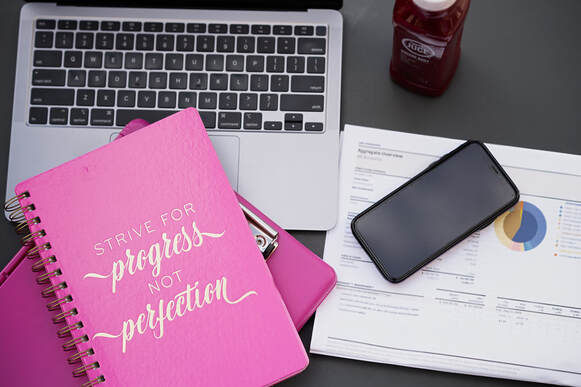
Everyone has a unique relationship around money. Some are obvious, others are buried. Together we address existing and potential roadblocks that may be blocking your financial clarity and confidence. Key to uncovering these are honesty with yourself and your coach, commitment to doing the work and willingness to be vulnerable. Even the wealthiest individuals hit barriers along the way; you are not alone
Financial fitness programs can be customized to address specific needs, such as reducing credit card debt, to ongoing programs to stay true to a solid money management system. More details will be provided after initial consultation.
Education becomes a major component within the Financial Fitness process, to eliminate confusion and keep your focus clear.
Along with the personalized attention, you will receive helpful resources and exercises to create healthier money habits that will get you to your wealth goals.
Financial fitness programs can be customized to address specific needs, such as reducing credit card debt, to ongoing programs to stay true to a solid money management system. More details will be provided after initial consultation.
Education becomes a major component within the Financial Fitness process, to eliminate confusion and keep your focus clear.
Along with the personalized attention, you will receive helpful resources and exercises to create healthier money habits that will get you to your wealth goals.
The following items are some first steps to think about to take the initiative and begin taking steps to become financially well:
Create and stick to a monthly budget
Financially secure individuals sit down at the beginning of each month, analyze their income, and plan their expenditures accordingly. Several times during the month, they evaluate where they’re at with their budget and make any necessary adjustments. Budgeting like this not only is smart financial management, but it gives you a sense of control over your finances, which is good for your financial wellness.
Build an adequate emergency fund
Sometimes life can throw us curveballs, and unexpected events, such as a surprise car repair bill, can throw our budget off-kilter. That's why you need an emergency savings fund. Having 3-6 months of income in reserve can help make sure that unforeseen expenses don’t kill your budget, or make you resort to using credit cards to handle an emergency.
Pay yourself first
Having the discipline to take the first ten percent from every paycheck and deposit it into an account designed for your long-term financial health, such as a retirement savings account, is a smart money move that financially savvy individuals take. It takes self-discipline, but as you watch your accounts grow, you’ll have the satisfaction of knowing you are responsible financially.
Start saving for retirement now
No matter how long you have until you retire, whether it be five years or forty-five, it’s not too late to start putting money aside for your retirement years. Of course, it’s best to do this when you’re in your twenties, but sometimes in our early earning years, we don’t have the funds for it. No matter how small the amount you can set aside, start now. You can increase the amount as your income grows.
Get the insurance you need
Along with good health and dental insurance plans, disability insurance is a must-have. You need to protect your income; it’s the most significant personal asset you have.
Create and stick to a monthly budget
Financially secure individuals sit down at the beginning of each month, analyze their income, and plan their expenditures accordingly. Several times during the month, they evaluate where they’re at with their budget and make any necessary adjustments. Budgeting like this not only is smart financial management, but it gives you a sense of control over your finances, which is good for your financial wellness.
Build an adequate emergency fund
Sometimes life can throw us curveballs, and unexpected events, such as a surprise car repair bill, can throw our budget off-kilter. That's why you need an emergency savings fund. Having 3-6 months of income in reserve can help make sure that unforeseen expenses don’t kill your budget, or make you resort to using credit cards to handle an emergency.
Pay yourself first
Having the discipline to take the first ten percent from every paycheck and deposit it into an account designed for your long-term financial health, such as a retirement savings account, is a smart money move that financially savvy individuals take. It takes self-discipline, but as you watch your accounts grow, you’ll have the satisfaction of knowing you are responsible financially.
Start saving for retirement now
No matter how long you have until you retire, whether it be five years or forty-five, it’s not too late to start putting money aside for your retirement years. Of course, it’s best to do this when you’re in your twenties, but sometimes in our early earning years, we don’t have the funds for it. No matter how small the amount you can set aside, start now. You can increase the amount as your income grows.
Get the insurance you need
Along with good health and dental insurance plans, disability insurance is a must-have. You need to protect your income; it’s the most significant personal asset you have.

